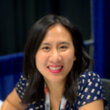The school for good mothers: a novel
Description
More Details
9781982156145
9781797135458
Excerpt
Similar Titles From NoveList
Similar Authors From NoveList
Published Reviews
Booklist Review
This debut is the contemporary tale of Frida Liu, educated mother and daughter of immigrants. Gust, Frida's unfaithful ex-husband, lives with crunchy, sexy Susanna. Through shared custody, Susanna becomes a kindly, dominant earth mother to Frida and Gust's toddler daughter. Isolated and stressed by motherhood, Frida has "one very bad day," is arrested, and must negotiate child-protective services. To win back parental rights, Frida enters the School for Good Mothers. At school, she's "Frida, neglect and abandonment." She must parrot, "I am a bad mother but I'm learning to be good." This authoritarian reform school retrains and restrains mothers by toying with maternal longings and hopes. The school's heartless use of artificial intelligence dolls is sinister and surreal. Mothers compete in breakneck drills, are trained in cloying motherese, and are graded on dolls' behaviors. Frida's chances of getting her daughter back through a "clean and maternal" rating are "fair to poor." Stark social commentary and questions of authority and attachment play out in Frida's desperate gambit to atone for her one very bad day.
Publisher's Weekly Review
Chan's enthralling speculative debut opens with a woman having "one very bad day" in Philadelphia. Frida Liu, Chinese American and recently divorced, has left her daughter, 18-month-old Harriet, alone at home in an ExerSaucer for two hours so she can work, a decision that results in Harriet's removal to a crisis center. Frida is then sentenced by a family court judge to one year in a live-in rehab program for bad moms that will use constant instruction, training, and supervision to determine if she can make "sufficient progress" as a mother or if her parental rights should be terminated. Guided by the mantra "I am a bad mother, but I am learning to be good," Frida and the other 200 moms must prove their worth by raising surrogate children in order to earn their own children back. Chan raises the stakes as she explores Frida's relationships with the other mothers, Harriet and Emmanuelle (her surrogate daughter), her ex-husband's new family, and her romantic interests. Chan (a former PW reviews editor) also tightens the screws of the program itself as the leaders capriciously deny privileges, such as 10-minute Sunday phone calls home, and broaden the definitions for what's considered an offense. Woven seamlessly throughout are societal assumptions and stereotypes about mothers, especially mothers of color, and their consequences. Chan's imaginative flourishes render the mothers' vulnerability to social pressures and governmental whims nightmarish and palpable. It's a powerful story, made more so by its empathetic and complicated heroine. Agent: Meredith Kaffel Simonoff, DeFiore and Company. (Jan.)
Library Journal Review
DEBUT At 39, single Chinese American mother Frida is collapsing under the crushing burdens of her life. Exhausted from caring for sick toddler Muriel while trying to work from home and having been abandoned by husband Gust, who moved in with his beautiful younger mistress when Muriel was an infant, Frida goes AWOL for a couple of hours, just long enough for a neighbor to alert the authorities. The police turn Muriel over to Gust, and Frida is caught up in Philadelphia's revamped Child Protective Services, which sends her off to one of several Schools for Good Mothers to see if her maternal instincts can be rehabilitated. At the school, all the wayward mothers are assigned robot dolls that serve as stand-ins for the children they have failed; the children are programmed to behave in age-appropriate ways to challenge the mothers to do better. The women are probed, monitored, and psychoanalyzed, pushed to achieve an ever-changing standard of perfection in thought, word, deed, and emotion while the promise of reunification with their human children remains an elusive target. VERDICT Chan's stunning debut could not be timelier, leaving no stone unturned in its allusion to the real-life legal assaults constraining women today. Part-dystopian, part-prescient, impossible to put down and impossible to forget.--Beth Andersen, formerly at Ann Arbor Dist. Lib., MI
Kirkus Book Review
Current ideas about parenting are held up to scrutiny in a dark satire that's also a dramatic women-in-prison story. "There are seventeen women tonight, including Frida. In one lit corner, they sit on cold metal folding chairs, arranged in a circle....They could be stars of a slasher film or the world's saddest hip-hop video." But in fact, they are mothers who have been separated from their children and incarcerated for one year at a former college campus outside Philadelphia. Recalling The Handmaids' Tale, Orange Is the New Black, and Clockwork Orange, Chan's debut features Frida, a 39-year-old Chinese American mom with a part-time job in academia and an 18-month-old named Harriet. Left for a younger woman by her husband, Gust, soon after their daughter was born, Frida is struggling with exhaustion and loneliness when she has her "very bad day"--she leaves Harriet alone in the house while she goes out to get coffee and pick up papers at work. Harriet is taken into custody, then sent to live with Gust and his girlfriend while Frida is surveilled in her home and on supervised visits to determine her fitness to parent. When she fails, she is remanded to reform school with other mothers who have looked away at the wrong time, who have given in to anger or selfishness, who must now repent and relearn. "I am a narcissist. I am a danger to my child," they are trained to recite, along with "I am a bad mother, but I am learning to be good." They are paired with lifelike robot dolls on whom they practice "Fundamentals of Care and Nurture" and study "Dangers Inside and Outside the Home." They are taught to speak "motherese" and to disregard their own needs and desires; they are tested, monitored, scanned, and evaluated. Friendships and romances bloom; desperation spreads; trouble brews. If this doesn't become a miniseries, nothing will. An enthralling dystopian drama that makes complex points about parenting with depth and feeling. Copyright (c) Kirkus Reviews, used with permission.
Booklist Reviews
This debut is the contemporary tale of Frida Liu, educated mother and daughter of immigrants. Gust, Frida's unfaithful ex-husband, lives with crunchy, sexy Susanna. Through shared custody, Susanna becomes a kindly, dominant earth mother to Frida and Gust's toddler daughter. Isolated and stressed by motherhood, Frida has "one very bad day," is arrested, and must negotiate child-protective services. To win back parental rights, Frida enters the School for Good Mothers. At school, she's "Frida, neglect and abandonment." She must parrot, "I am a bad mother but I'm learning to be good." This authoritarian reform school retrains and restrains mothers by toying with maternal longings and hopes. The school's heartless use of artificial intelligence dolls is sinister and surreal. Mothers compete in breakneck drills, are trained in cloying motherese, and are graded on dolls' behaviors. Frida's chances of getting her daughter back through a "clean and maternal" rating are "fair to poor." Stark social commentary and questions of authority and attachment play out in Frida's desperate gambit to atone for her one very bad day. Copyright 2021 Booklist Reviews.
Library Journal Reviews
Frida Liu boasts neither a faithful husband nor the jaw-dropping career that she feels would recompense her long-suffering Chinese immigrant parents, but with her beloved daughter, Harriet, she feels completely fulfilled. One inattentive moment, though, and she is branded a bad mother, and spookily authoritarian government officials consider consigning her to a program that will measure her true maternal potential—lest she lose her daughter. Plenty of today's parents will identify. With a 150,000-copy first printing; from a former reviews editor at Publishers Weekly with an MFA from Columbia.
Copyright 2021 Library Journal.Library Journal Reviews
DEBUT At 39, single Chinese American mother Frida is collapsing under the crushing burdens of her life. Exhausted from caring for sick toddler Muriel while trying to work from home and having been abandoned by husband Gust, who moved in with his beautiful younger mistress when Muriel was an infant, Frida goes AWOL for a couple of hours, just long enough for a neighbor to alert the authorities. The police turn Muriel over to Gust, and Frida is caught up in Philadelphia's revamped Child Protective Services, which sends her off to one of several Schools for Good Mothers to see if her maternal instincts can be rehabilitated. At the school, all the wayward mothers are assigned robot dolls that serve as stand-ins for the children they have failed; the children are programmed to behave in age-appropriate ways to challenge the mothers to do better. The women are probed, monitored, and psychoanalyzed, pushed to achieve an ever-changing standard of perfection in thought, word, deed, and emotion while the promise of reunification with their human children remains an elusive target. VERDICT Chan's stunning debut could not be timelier, leaving no stone unturned in its allusion to the real-life legal assaults constraining women today. Part-dystopian, part-prescient, impossible to put down and impossible to forget.—Beth Andersen, formerly at Ann Arbor Dist. Lib., MI
Copyright 2021 Library Journal.Publishers Weekly Reviews
Chan's enthralling speculative debut opens with a woman having "one very bad day" in Philadelphia. Frida Liu, Chinese American and recently divorced, has left her daughter, 18-month-old Harriet, alone at home in an ExerSaucer for two hours so she can work, a decision that results in Harriet's removal to a crisis center. Frida is then sentenced by a family court judge to one year in a live-in rehab program for bad moms that will use constant instruction, training, and supervision to determine if she can make "sufficient progress" as a mother or if her parental rights should be terminated. Guided by the mantra "I am a bad mother, but I am learning to be good," Frida and the other 200 moms must prove their worth by raising surrogate children in order to earn their own children back. Chan raises the stakes as she explores Frida's relationships with the other mothers, Harriet and Emmanuelle (her surrogate daughter), her ex-husband's new family, and her romantic interests. Chan (a former PW reviews editor) also tightens the screws of the program itself as the leaders capriciously deny privileges, such as 10-minute Sunday phone calls home, and broaden the definitions for what's considered an offense. Woven seamlessly throughout are societal assumptions and stereotypes about mothers, especially mothers of color, and their consequences. Chan's imaginative flourishes render the mothers' vulnerability to social pressures and governmental whims nightmarish and palpable. It's a powerful story, made more so by its empathetic and complicated heroine. Agent: Meredith Kaffel Simonoff, DeFiore and Company. (Jan.)
Copyright 2021 Publishers Weekly.


































